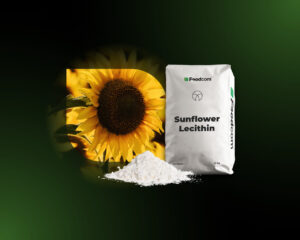- Coconut, almonds and sunflower seeds – growing popularity of plant-based products, driven by changes in consumer preferences and challenges in supply chains.
- Europe – anticipated increase in sugar production in Poland could stabilise prices locally, responding to volatility in international markets.
- Global wheat market – struggling with low yields and declining exports, affecting global supply and prices.
- South America – soybean planting in Brazil is going slower than last year; changing weather conditions may affect future supply and price forecasts.
Welcome to Partners!
Welcome back to our newsletter!
Coconut, almonds and sunflower seeds are gaining popularity as important products in the plant-based market. Coconut products are experiencing steady growth, driven by increasing demand for lactose-free alternatives. Almonds are facing supply challenges due to water shortages in California, affecting costs. Meanwhile, sunflower seeds are facing rising prices due to supply chain and climate pressures, highlighting the need for sustainable solutions.
Let’s see what else has happened recently in the plant-based market!
Coconut chips
Coconut products such as coconut chips are gaining popularity as a healthy, plant-based alternative, especially in North America and Europe. More and more consumers are turning to lactose-free products to replace sweetened beverages and traditional dairy products. The global market for coconut products is projected to grow at a steady rate of 8.4% per year until 2030. Growing demand, higher transport costs and difficulties in supply chains are translating into higher prices for these imported products, especially in Europe. Additionally, European consumers are increasingly looking for organic and fair-trade products, further fuelling their popularity among conscious consumers.
Almonds
Almonds are a key ingredient in plant-based products, especially the popular almond milk, which is prized for its high protein content and lack of lactose. However, California, responsible for around 80% of the world’s almond production, is struggling to cope with water shortages and droughts. This is driving up crop costs and limiting the availability of almonds. In response to these challenges and growing consumer expectations for sustainable practices, companies are developing water-saving strategies and seeking alternative sources of supply.
Sunflower seeds
Sunflower seeds are prized for their nutritional value and versatility. Currently, their prices are rising due to disruptions in supply chains and harsh weather conditions, especially in eastern Europe, a major production region. In order to maintain a stable supply and to meet consumers’ growing organic expectations, companies are investing in modern production technologies. The rise in popularity of plant-based products worldwide is increasing both demand and prices for raw materials such as sunflower. As a result, sustainable solutions are becoming key to the future of this market.
What else ?
Europe
Poland is anticipating a significant increase in sugar production this year, thanks to favourable weather and better sugar beet yields. Such a development could increase the availability of sugar in the country and help stabilise prices, especially in view of the volatility on the world market. Higher production efficiency and strategic investment in agriculture play a significant role here, supporting Poland’s ambitions to strengthen its position on the European sugar market. This growth also fits in with the objectives of the European Union, which seeks greater independence from imports, strengthening local production and the economic resilience of the agricultural sector.
Global
The global wheat market is struggling due to falling exports, unfavourable weather and reduced crop quality. US winter wheat is threatened by severe weather conditions and EU exports are down by a third compared to last year. Although the outlook for overall cereal production in Brazil is promising, wheat remains vulnerable, which could lead to supply problems and price volatility on international markets. The current situation points to challenges for the global stability of the wheat market, so it is worth keeping a close eye on upcoming harvest and weather data.
South America
Soybean planting in Brazil for the 2024-25 season has reached 36%, which is slightly slower than last year’s 39%. Farmers face a variety of weather conditions in different regions of the country. Soybean prices increased slightly by around €0.10 on 30 October, reflecting the market’s response to planting progress and global demand. The slower pace of planting underscores the importance of weather in the coming weeks, which will be crucial for Brazil, the world’s largest soybean producer. These conditions will influence global supply forecasts and could shape future price trends.

![Coconut, almonds and sunflower seeds: plant market hits amidst challenges! [68th Edition of the PLANT-BASED Newsletter] Coconut, almonds and sunflower seeds: plant market hits amidst challenges! [68th Edition of the PLANT-BASED Newsletter]](https://foodcom.pl/wp-content/uploads/2023/08/Foodcom_Plant-Based_Newsletter-1520x760.jpg)


![Plant-Based Market: navigating potato costs & vegan demand [67th Edition of the PLANT-BASED Newsletter] Plant-Based Market: navigating potato costs & vegan demand [67th Edition of the PLANT-BASED Newsletter]](https://foodcom.pl/wp-content/uploads/2023/08/Foodcom_Newsletter_Plant-Based-600x300.jpg)
![Unlocking market potential: boom for tapioca, potato protein and brewer’s yeast [66th edition of PLANT-BASED newsletter] Unlocking market potential: boom for tapioca, potato protein and brewer’s yeast [66th edition of PLANT-BASED newsletter]](https://foodcom.pl/wp-content/uploads/2023/08/Foodcom_Plant-Based_Newsletter-600x300.jpg)
![Update on EU agriculture, Indian edible oil market and protein innovations [65th edition of PLANT-BASED newsletter] Update on EU agriculture, Indian edible oil market and protein innovations [65th edition of PLANT-BASED newsletter]](https://foodcom.pl/wp-content/uploads/2023/08/Foodcom_SA_Newsletter_Plant-Based-600x300.jpg)

